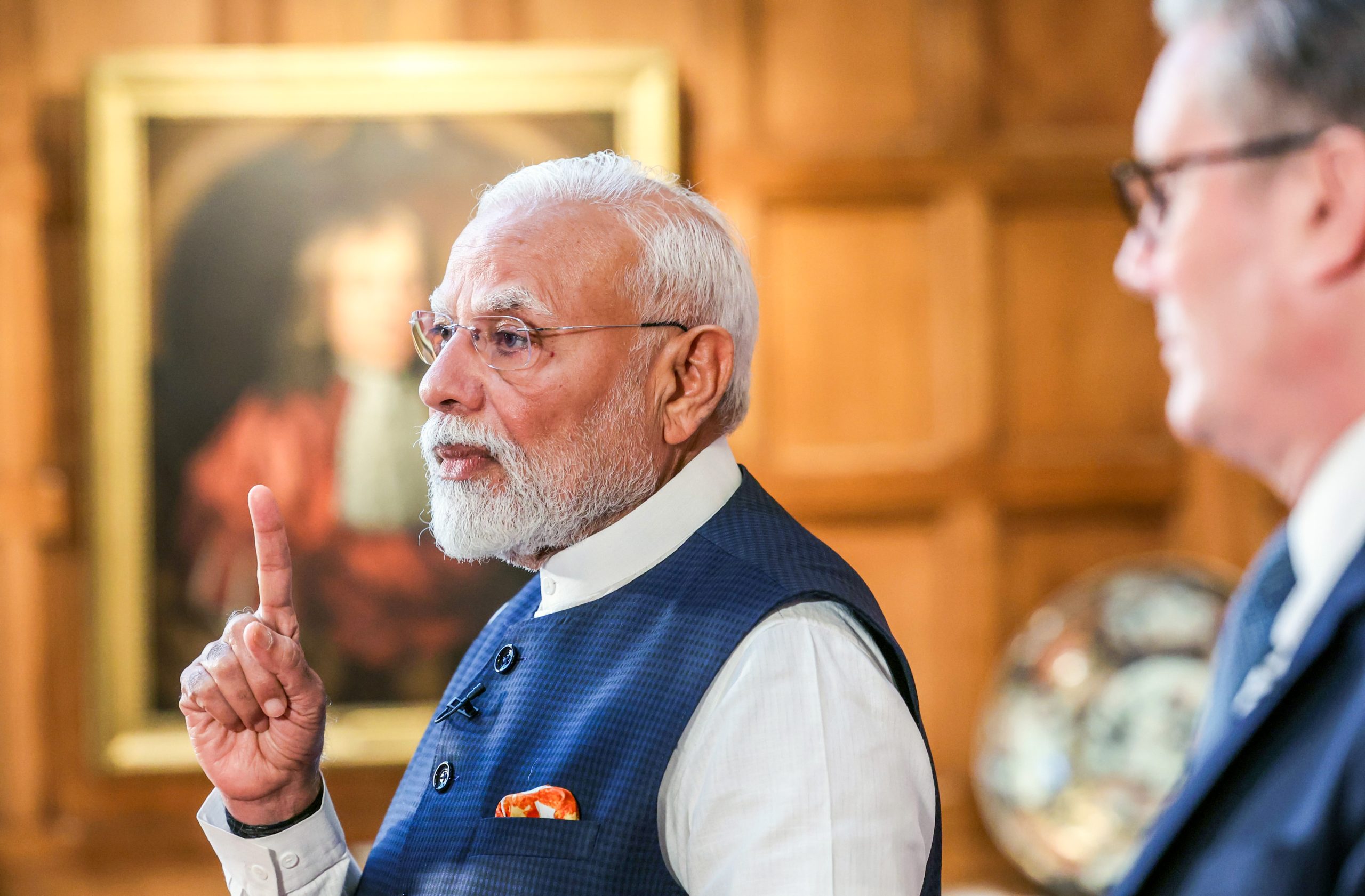Prime Minister Narendra Modi and his British counterpart Keir Starmer on Thursday signed the eagerly-awaited India-UK Free Trade Agreement (FTA), marking a landmark moment in the bilateral economic relationship.
As part of the historic pact, the UK will reduce duties on 99 per cent of Indian exports, while India will lower tariffs on 90 per cent of British goods, significantly easing tariff barriers and regulatory procedures across multiple sectors.
The agreement is expected to make imported goods more affordable for Indian consumers, including luxury cars, cosmetics, medical devices, gin, and Scotch whisky. Within the next two years, India’s leather industry is projected to increase its market share in the UK by 5 per cent.
A high-level industry delegation led by Sunil Bharti Mittal, Founder and Chairman of Bharti Enterprises and Co-Chair of the India-UK CEO Forum, accompanied Prime Minister Modi. The delegation included 16 key business leaders and was organized by the Confederation of Indian Industry (CII).
Calling the pact a “game-changer,” Indian industry leaders praised the FTA for opening new opportunities and strengthening long-term economic collaboration between the two nations.
“Indian industry across all sectors welcomes the India–UK FTA with great optimism. This agreement establishes a modern, forward-looking partnership that will stimulate innovation, ease market access, and foster investment,” said Mittal. “Businesses in both India and the UK stand to benefit as this lays the foundation for expanding bilateral cooperation across key growth sectors.”
Dr. Anish Shah, Group CEO and MD of Mahindra Group, called the agreement a transformative milestone in the global economic landscape. “It’s not just a win for trade, but a blueprint for a modern, values-led partnership that puts innovation, sustainability, and inclusive growth at the heart of global collaboration,” he said.
Kirit Bhansali, Chairman of the Gem and Jewellery Export Promotion Council, noted the FTA’s positive impact on India’s gem and jewellery sector. “Currently, exports to the UK stand at $941 million. With the duty concessions in place, this figure is expected to surge to $2.5 billion within the next three years, elevating overall bilateral trade in our sector to an estimated $7 billion,” Bhansali said.
(IANS)














